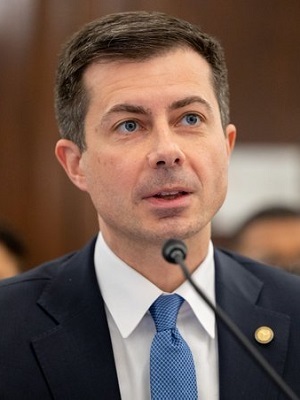The Federal Highway Administration (FHWA)'s recently announced $513 million in infrastructure emergency relieve funds, including a large chunk for Michigan, will help local communities recover from natural disasters and other catastrophic events, according to news releases.
FHWA announced the Emergency Relief Program funds in an Aug. 31 news release. The funds will be sent to 30 states, the District of Columbia and Puerto Rico to spend on repairs for roads and bridges damaged by floods, storms, wildfires and other events in recent years.
"These funds with help communities across our nation repair roads and bridges damaged by severe weather events, which are becoming increasingly common because of climate change," U.S. Transportation Secretary Pete Buttigieg said in the release. "From recent hurricanes that struck the Gulf Coast, to wildfires in California and floods and mudslides in numerous states, we must address the devastating impacts of climate change and work to build more sustainable transportation infrastructure to better withstand its impacts for years to come."

U.S. DOT Secretary Pete Buttigieg speaking before the Senate Commerce Committee in May
| twitter.com/commercedems
Almost 10% of the Emergency Relief Program funds, $50 million, will go to Michigan in reimbursements for 2020 road and bridge repairs following dam failures and flooding in mid-the state's midsection, Michigan Gretchen Whitmer said in a separate news release.
"This grant will bring federal taxpayer dollars back to Michigan and help us continue to fix the damn roads and bridges," Whitmer said in a news release issued by her office the same day as the FHWA release.
Most of the FHWA Emergency Relief Program fund has been earmarked to reimburse states, territories, federal land management agencies and tribal governments for repairs already completed to restore roads and bridges. The funds are intended to repair infrastructure damaged by hurricanes, wildfires, flooding and other weather-related events. Funding is intended to help pay for repairs for damage caused by events such as the 2015 and 2016 California winter storms, 2017 Hurricanes Irma and Maria, Arkansas flooding, Alabama tornadoes.
The FHWA's announcement marked the second allocation in the current fiscal year, which brings the total to more than $1.9 billion.
FHWA also is attempting to address climate change via an update to its Emergency Relief Manual for 2022 "to spotlight the program's impact on improvements to system resilience," the news release said.








